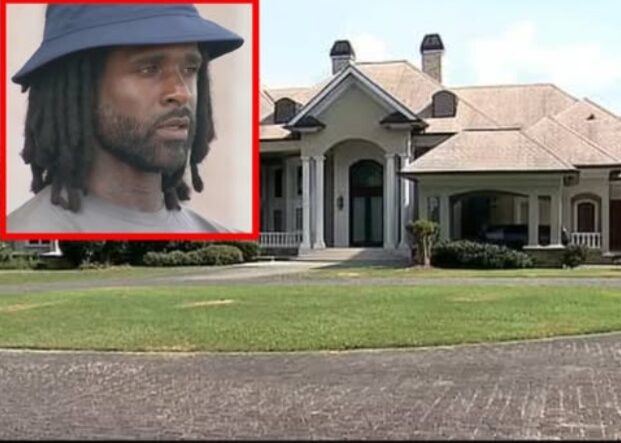Landscaper Faces Legal Trouble After Hosting Unauthorized Party in Client’s $4.3M Mansion
A 37-year-old landscaper in Georgia is now under investigation after allegedly hosting an unauthorized party at a client’s multimillion-dollar property, raising significant concerns about trust, property rights, and professional misconduct.
Michael Brown, the owner of Brown’s Dream Team Landscaping, reportedly gained access to a $4.3 million mansion where he was contracted to work—and instead of performing landscaping duties, he allegedly organized and profited from a large-scale party without the owner’s consent.
According to local reports, the event drew a crowd of hundreds. Attendees were reportedly charged an entry fee, suggesting the gathering was not a spontaneous get-together but a commercial enterprise masked as a private party. The mansion’s luxury appeal attracted widespread attention, but it wasn’t long before things spiraled out of control.
Nearby residents, disturbed by loud music and a high volume of parked vehicles lining the street, eventually contacted law enforcement. Officers responded to the scene and dispersed the crowd. Authorities have since launched an investigation to determine the full extent of the damage and whether any laws were violated in the process.
At the heart of the issue is a breach of trust. Homeowners often rely on contractors to enter their private property to complete essential services. This situation raises broader concerns about safeguarding personal assets and vetting those given access to private residences. In many regions, unauthorized use of property, especially when done for profit, may lead to serious legal consequences, including trespassing charges, civil lawsuits, and even criminal liability depending on state laws.
While Brown has not yet made a public statement, early responses on social media and local news outlets have been swift and critical. Legal experts emphasize that misuse of access privileges not only damages reputations but also may jeopardize future licensing, insurance claims, and professional certifications in certain industries.
The mansion’s owner has not been named publicly, but sources close to the situation say the homeowner was not aware of the party and is currently considering legal action. Depending on the property’s condition post-event, restitution for any damages incurred may also be pursued. This includes not only physical damages but also potential losses related to home devaluation, security concerns, or emotional distress.
Events like this also bring attention to the growing need for technology-based home monitoring solutions. With smart security systems becoming more affordable and accessible, more homeowners are installing cameras, alarms, and access logs to track who enters their property and for how long. These systems could provide valuable evidence in situations where misconduct occurs.
Professionals in any service-based industry are bound by a code of conduct—both formal and implied—that hinges on respect for client property and the sanctity of private spaces. Breaching that code can have long-lasting consequences, not only legally but also in terms of community trust and career longevity.
This case serves as a stark reminder: trust is the cornerstone of any professional agreement. Violating that trust, especially with actions that exploit private property for personal financial gain, threatens not only the livelihood of the individual involved but also undermines the credibility of the entire profession.
As the investigation unfolds, legal proceedings may bring further clarity to the events of that evening. For now, the community—and the wider public—are left to reflect on the importance of integrity, accountability, and the very real consequences when either is disregarded.
Source: CBS News / Local Reports
